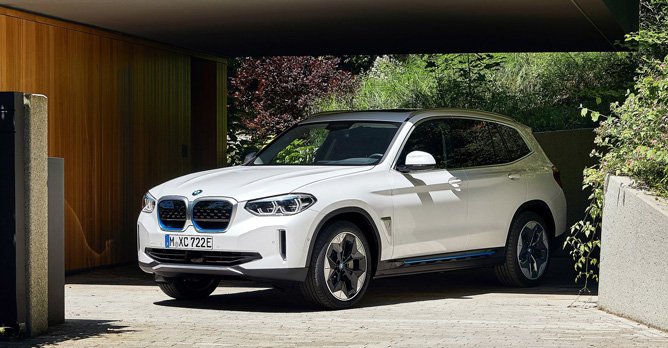The BMW Group publishes an Integrated Group Report
12 Mar 2021|1,062 views
The BMW Group is embarking on a new chapter in its reporting. For the first time, it will be combining its Annual Report and its Sustainable Value Report for the reporting year 2020 in a single Integrated BMW Group Report.
After the Board of Management redefined BMW's central sustainability goals in 2020, integrated reporting marks the next logical step - thanks to integrated management of the company. Henceforth, the Integrated Report will be published to coincide with the BMW Group Annual Conference, outlining BMW's economic performance, as well as its contribution to the environment and to society.

In July 2020, the BMW Group set a new CO2 reduction target up to 2030 - extending for the first time throughout the entire lifecycle, from the supply chain through production to the end of the use phase. The aim is to significantly reduce CO2 emissions per vehicle by at least one third across the entire range. For over 2.5 million vehicles produced in 2019, this means a reduction of more than 40 million tonnes of CO2 by 2030.
Having already lowered CO2 emissions per vehicle produced by more than 78% since 2006, the BMW Group now aims to reduce its emissions by a further 80% from 2019 levels by 2030. The goal is to reduce CO2 emissions during the vehicle use phase compared to 2019 by more than 40% per kilometre driven by 2030. The main lever for this will be a far-reaching product strategy with systematic expansion of e-mobility.
The BMW Group is the first automotive manufacturer to establish concrete CO2 targets for its supply chain. The aim here is to lower CO2 emissions per vehicle by at least 20% from 2019 levels. One of the ways the BMW Group is doing this is by making carbon footprint a decision criterion in its contract award processes. The BMW Group has the long-term aim of establishing a climate-neutral business model by 2050.
The BMW Group is embarking on a new chapter in its reporting. For the first time, it will be combining its Annual Report and its Sustainable Value Report for the reporting year 2020 in a single Integrated BMW Group Report.
After the Board of Management redefined BMW's central sustainability goals in 2020, integrated reporting marks the next logical step - thanks to integrated management of the company. Henceforth, the Integrated Report will be published to coincide with the BMW Group Annual Conference, outlining BMW's economic performance, as well as its contribution to the environment and to society.

In July 2020, the BMW Group set a new CO2 reduction target up to 2030 - extending for the first time throughout the entire lifecycle, from the supply chain through production to the end of the use phase. The aim is to significantly reduce CO2 emissions per vehicle by at least one third across the entire range. For over 2.5 million vehicles produced in 2019, this means a reduction of more than 40 million tonnes of CO2 by 2030.
Having already lowered CO2 emissions per vehicle produced by more than 78% since 2006, the BMW Group now aims to reduce its emissions by a further 80% from 2019 levels by 2030. The goal is to reduce CO2 emissions during the vehicle use phase compared to 2019 by more than 40% per kilometre driven by 2030. The main lever for this will be a far-reaching product strategy with systematic expansion of e-mobility.
The BMW Group is the first automotive manufacturer to establish concrete CO2 targets for its supply chain. The aim here is to lower CO2 emissions per vehicle by at least 20% from 2019 levels. One of the ways the BMW Group is doing this is by making carbon footprint a decision criterion in its contract award processes. The BMW Group has the long-term aim of establishing a climate-neutral business model by 2050.
Latest COE Prices
May 2025 | 2nd BIDDING
NEXT TENDER: 04 Jun 2025
CAT A$102,501
CAT B$116,988
CAT C$63,189
CAT E$118,010
View Full Results Thank You For Your Subscription.


















